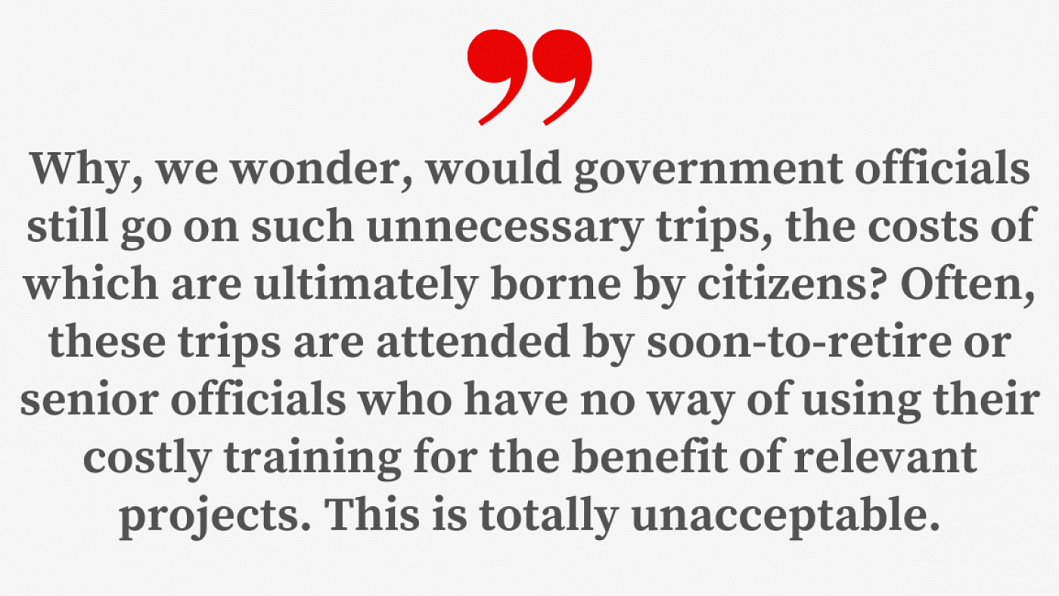Training trips, or shopping excursions?

In a virtual address recently, the prime minister, for the umpteenth time, urged people to exercise austerity. But then, a group of government officials, for the umpteenth time, showed that they are above such instructions possibly because they are "a different class of people" – as the attorney general recently told the apex court, while defending public servants' right to exemption from arrests without permission. We are talking about a flagrant disregard for the PM's austerity call here, coming in the form of an unnecessary foreign trip being planned for senior public officials.
According to our report, a group of bureaucratic heavyweights are set to visit Germany for a "training exercise" as part of a project of the Bangladesh Water Development Board. Under the project, 905 automated wells with data loggers and telemetry systems have been installed. But six of the eight people selected for the trip are secretary and director level officials, and one is an executive engineer. None of them, however, are involved with the day-to-day maintenance of the work involved. Reportedly, the cost of the tour would be no less than Tk 30 lakh – money that could be saved in this time of great crisis, or better utilised through training field-level officials who could actually ensure the public get their money's worth.

Just like the tour plan, the project itself seems to be on shaky ground. For example, around 150 automated wells installed as part of the project have already gone out of order, even before the project could be finished, necessitating the training for field officers to learn about troubleshooting and maintenance of automated systems. Only, they will not be attending the training. As well as concerns over the selection of high-profile attendees – who seem to have self-selected themselves – there is an equally important question: How could so many wells go out of order so soon? This cannot be a normal development. It only shows the laissez-faire approach with which most government projects are executed, with corruption, mismanagement and inefficiency coming every step of the way.
Unfortunately, ill-planned trips like this are increasingly becoming the norm. This is despite the fact that the finance ministry, on May 12, issued a notification about the government decision to place an embargo on all kinds of overseas trips by public officials, including exposure visits, study tours, workshops or seminars, to ease pressure on foreign exchange reserves. On July 25, the PM also restricted all government-funded overseas visits except in cases of foreign aid. Why, we wonder, would government officials still go on such trips, the costs of which are ultimately borne by citizens? Often, these trips are attended by soon-to-retire or senior officials who have no way of using their costly training for the benefit of relevant projects. This is totally unacceptable.
We urge the higher authorities to bring an end to this gross violation of official instructions by public offices themselves.


 For all latest news, follow The Daily Star's Google News channel.
For all latest news, follow The Daily Star's Google News channel. 






Comments